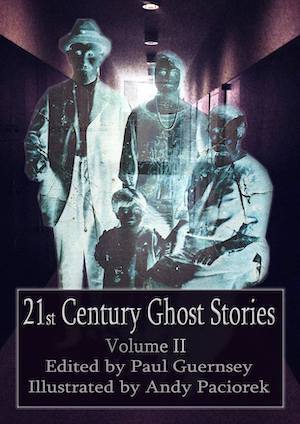
What Now? Getting Their Attention is Easy—But Maintaining The Suspense Is Hard! Image: Curtis MacNewton
Our Writing Tips On How To Craft a Ghost Story Or Other Eerie Tale That Keeps Your Reader Riveted
In reality, a supernatural story isn’t all that different from any other piece of short fiction. Most of the same good, technical practices apply for creating any tale that is truly memorable. Nonetheless, writers of stories that contain a supernatural element do face a few additional hurdles that need to be surmounted. For just one example, how do you structure and pace your story so that your readers remain with you for the complete ride, that delightfully icy feeling running up and down their backs the entire time?
As it is once again the season in which a lot of writers are polishing their submissions for The Ghost Story Supernatural Fiction Award, we thought this would be an ideal time to offer an array of tips on writing, revising, and presenting ghost stories, vampire stories, horror stories, fantasy stories, literary magic realism, and other tales with a strong supernatural kick. But keep in mind that most of the advice we give here will be effective regardless of the fiction genre in which you’re working.
Between now and September 30, when The Ghost Story contest closes, we’ll be providing links to fresh writing tips on a regular basis. Some of these tips will consist of our own advice, gleaned from years of professional writing and editing; others will be derived from the philosophies and practices of successful supernatural tale-tellers, from Edgar Allan Poe to Stephen King.
We invite you to keep revisiting this post to find our latest updates on craft, and perhaps also to participate in the conversation on our Facebook page. BTW . . . as you’d do with anyone’s advice, we encourage you to take what you find useful, and disregard the rest. And please feel free to disagree with us, or Poe, or anybody whose opinions are presented here. Each writer is unique, after all, and must go about the process of creating a tale in his or her own slightly unique way. . . .
Creating believable characters.
Stephen King on bringing your characters to life.
Stephen King on the need to avoid adverbs.
Making use of internal terror.
Stephen King says to write in the active voice!
Stephen King on avoiding clichés.
Stephen King on the importance of revision.
Read widely to improve your writing.
Stephen King’s tips on the art of description.
How to write effective descriptions.
Stephen King on avoiding pretentiousness in your stories.
Before submitting, mind your manuscript mechanics.
Stephen King says limit your background information.

